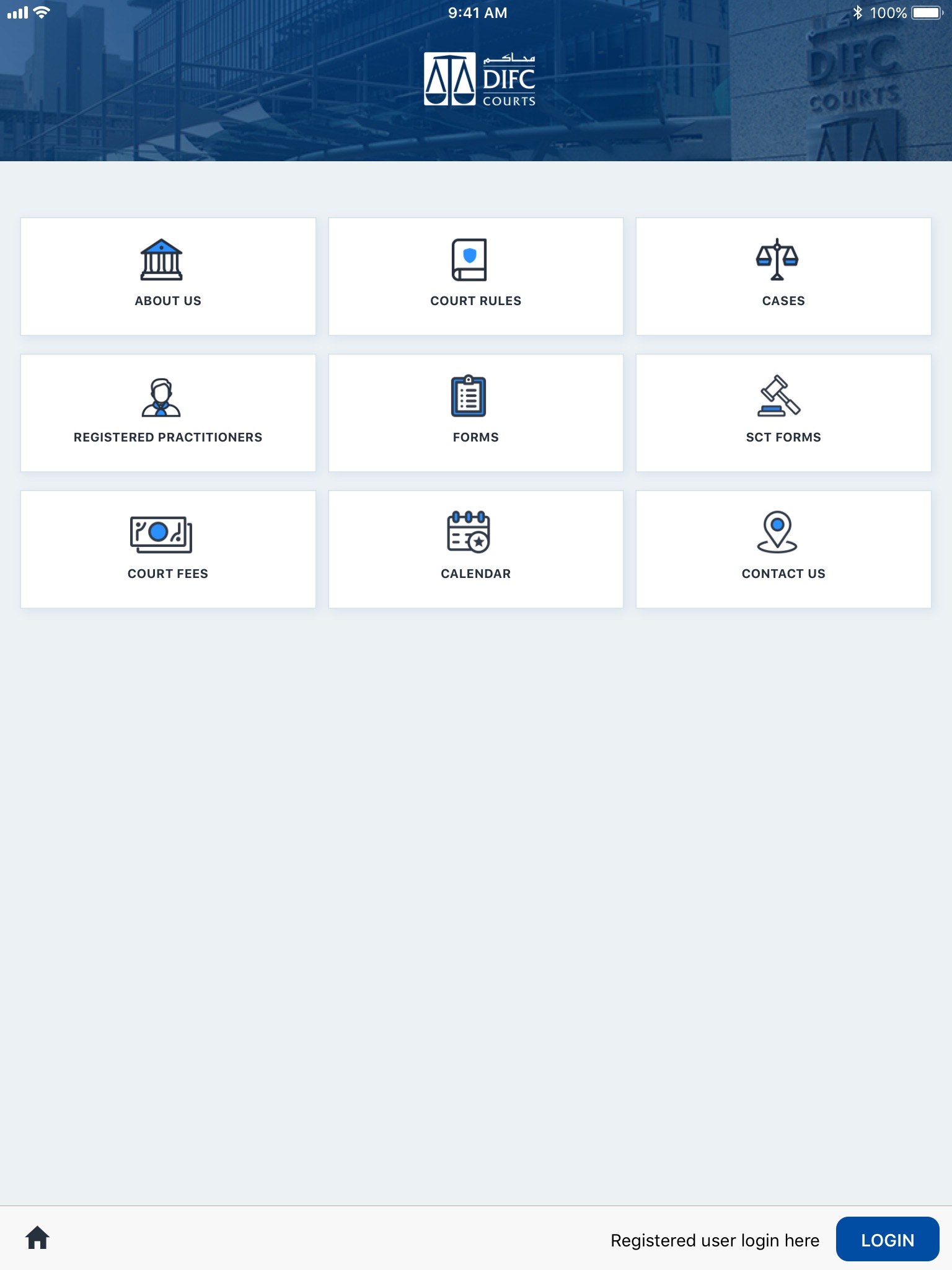
DIFCCourts app for iPhone and iPad
Developer: DIFC Courts
First release : 05 Nov 2018
App size: 78.58 Mb
The DIFC Courts were established under two laws enacted by the late Ruler of Dubai His Highness Sheikh Maktoum bin Rashid Al Maktoum, the then Ruler of Dubai. Dubai Law No. 12 of 2004 (as amended by Dubai Law No. 16 of 2011 – click here to read Law 12 of 2004 as amended ) established the DIFC Courts, describes the jurisdiction of the Courts and provides for the independent administration of justice in the DIFC. DIFC Law No: 10 of 2004 sets out the powers, procedures, functions and administration of the DIFC Courts. The laws establishing the DIFC Courts were designed to ensure the highest international standards of legal procedure thus ensuring that the DIFC Courts provide the certainty, flexibility and efficiency expected by the global institutions operating in, with and from Dubai and the UAE.
FUNCTIONS
The laws enacted provide for a court system capable of resolving all civil and commercial disputes, ranging from sophisticated, international financial transactions to debt collection and employment disputes. The DIFC Courts deal exclusively with all cases and claims arising out of the DIFC and its operations, and any other claims in which all parties agree in writing to use the DIFC Courts.
The DIFC Courts carry out their functions in an independent manner, in accordance with the provisions of the DIFC laws and regulations.
JURISDICTION
The DIFC laws allow for any institution operating within the DIFC to select a legal jurisdiction of its choice, other than the DIFC, when entering into contracts. However, in the event that parties do not do so, the DIFC laws will be applicable by default and they can file a case in the DIFC Courts.
The DIFC Courts have jurisdiction over civil and commercial matters only. The DIFC Courts do not have jurisdiction over criminal matters. All criminal matters are referred to the appropriate external authority.
ENFORCEMENT
The DIFC Courts have the power, in matters over which it has jurisdiction, to make any orders, including interlocutory orders and to issue or direct the issue of any writs it considers appropriate. Orders may be made in relation to restitution, disgorgement, compensation, or damages. The DIFC Courts may also waive any procedural requirements if the DIFC Courts are satisfied that an applicant is unable to meet the procedural requirement. The Former Chief Justice has appointed two of the Judges as Execution Judges with the jurisdiction to issue Enforcement Orders within the DIFC.



